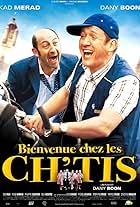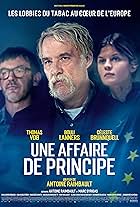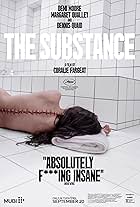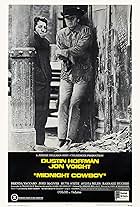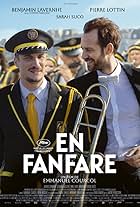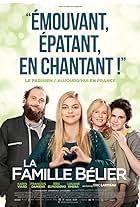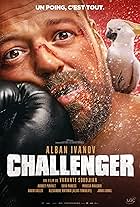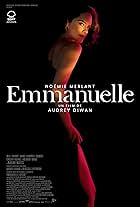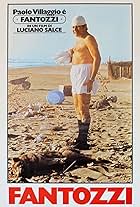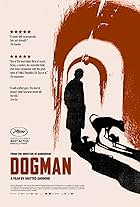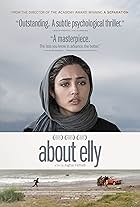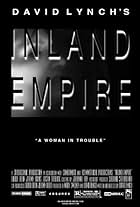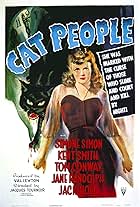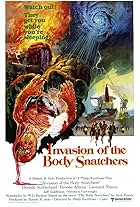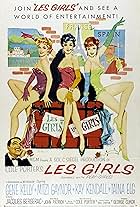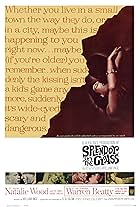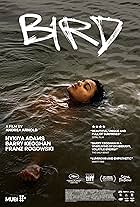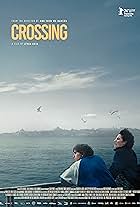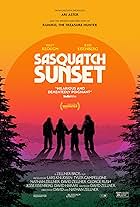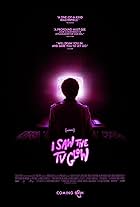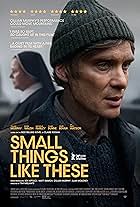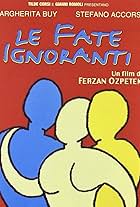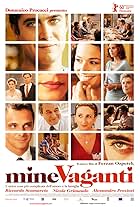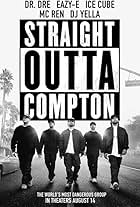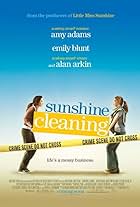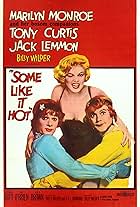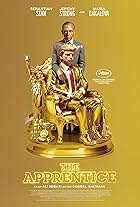
matlabaraque
Joined Dec 2005
Welcome to the new profile
We're still working on updating some profile features. To see the badges, ratings breakdowns, and polls for this profile, please go to the previous version.
Ratings2.5K
matlabaraque's rating
Reviews28
matlabaraque's rating
Featuring a wide range of French movie stars (Gilles Lellouch and Ludivine Saignier among others) as well as raising stars such as Raphael Quenard and Paul Kircher, the film had everything to lead to a success: An ambitious scenario with social struggle in the background, a very moral outcry against racial stereotypes, and beautiful faces to play the roles of loving teenagers. All in all, a full range of ingredients of a box-office hit were gathered. However the well prepared recipe doesn't work, leading to a nauseating overdose of namby-pamby sentimentality orchestered by an insisting 90's soundtrack.
As I said a few times in my previous reviews, a good book doesn't make a good film, just as good ingredients don't make a good dish. Doing a film is way different from writting a book and the emotion must be contextualized in some key scenes that this film is utterly deprived. And music can't save it all ! I am sorry but it's not because I hear Withney Houston's "I will always love you" that I'll be necessarily moved by a kiss or a love scene. It seems that the director relies too much on this technique to arouse our teenagers' memories.
The very acclaimed book (of Nicolas Mathieu, from which this story comes from) focuses on portraits of young teenagers living in the suburbs of eastern France in the 1990s, with the backdrop of the region's deindustrialization in the background. And so does the film... but in a clumsy way. The dialogs, many "key" scenes and the storytelling are most of the time unrealistic. It was, and it is a very interesting subject indeed but the way in which this theme is treated and interpreted is crucial. I have to admit that some of the actors are fairly good (Anthony's best friend, the girl friend and Gilles Lellouch of course as the father) but some others are off-putting mainly because the film is not very well written and some scenes are cheesy. For instance, I was disappointed by the performance of Ludivine Saigner, a good actress without a shadow of a doubt but certainly questionable in her role of a popular mum disenchanted by her drunk husband.
I may be even harsher when it comes to Paul Kircher, who plays the role of Anthony, the main character. Although he was brilliant in Animal Kingdom, he seems constantly mistaken in that film in which he wanders from place to place without lifting his face and without changing his attitude throughout the film ! He is permanently plunged into some sort of a teenage depression from beginning to end and there is barely an evolution from the starting point to the end in Anthony's attitude so it's hard to believe he is learning anything good from all his hard blows.
A lot of things fall short especially the key moments of Anthony's life. To me, everything goes too fast and is most the time poorly represented.
For instance, Anthony at the beginning of the film is supposed to be 14 . He's shy, clumsy, ugly like any other kid of his age and he rebels against his parents. How on earth does he manage to talk to absolute georgeous teenage girls who actually look 20 (+) in a deserted beach near a lake? How does this teenage low class boy manage to join a drugfree party in a beautiful house without drawing attention and how does he dare to challenge the local gangsters in an unfamiliar environment at the age of 14 ? Plenty of scenes are like this, just like when he reveals to the spectators how much he loves the girl by provoking a fight with her new lover, naked in the snow in front of a crowd...(!).
Not very credible is it ?
I've got the same feeling with the "vilain", the sensation of being had with something not very credible. Hacine, the vilain, after two years of exile in Morrocco comes back as Tony Montana in his neighborhood all by himself and with the confidence of a well-known gangster. How am I supposed to believe that? Wouldn't it be interesting to bring him up to a leading part with a true contrast with Anthony, instead of assigning him a role in which vengeance is the only goal he has ? Quite a pity if you consider how magnetic this actor can be.
Last but not least: the love story. I said earliier that Angelina Woreth (the girl friend of Anthony) is fairly good, reserved but with charisma. However, the contrast with the main teenager character of Anthony is way too big. The key scenes are just not there to make us understand their fatal attraction to one another. The love story, to me, never really happens, there is no obvious reason to it. So we are almost surprised when it becomes real.
I will end up this bad review with a good point and a question mark. Gilles Lellouche, the father of Anthony, is excellent, brilliant, touching, even frightening sometimes. His acting is perfect as always, he perfectly depicts the backdrop of the region and the lack of sense for the people like him left in the lurch. I just wonder how much of a coincidence it is that Gilles Lellouche acts in a film that is strangely very similar to his (Beating Hearts) which was in theatre a few weeks ago. The same appetite for music, violence and teenage romance... The same injunction to 90's nostalgia. Quite disturbing to have two very similar films done partially by the same people.
My bet is that this film (Leurs Enfants Apres Eux) will not be as cult as Beating Hearts by missing the key moments of the storytelling and by a rather cheesy representation of this epoch.
I don't want to be misunderstood, or mislead the people who read this review: I have put a 2/10 because it carried a part of desillusion and I did have some expectation going to theatre to see this film. It could perfectly be a 4 or a 5 but clearly not a success for the directors who, (to me) partially failed in the depiction of this social drama.
As I said a few times in my previous reviews, a good book doesn't make a good film, just as good ingredients don't make a good dish. Doing a film is way different from writting a book and the emotion must be contextualized in some key scenes that this film is utterly deprived. And music can't save it all ! I am sorry but it's not because I hear Withney Houston's "I will always love you" that I'll be necessarily moved by a kiss or a love scene. It seems that the director relies too much on this technique to arouse our teenagers' memories.
The very acclaimed book (of Nicolas Mathieu, from which this story comes from) focuses on portraits of young teenagers living in the suburbs of eastern France in the 1990s, with the backdrop of the region's deindustrialization in the background. And so does the film... but in a clumsy way. The dialogs, many "key" scenes and the storytelling are most of the time unrealistic. It was, and it is a very interesting subject indeed but the way in which this theme is treated and interpreted is crucial. I have to admit that some of the actors are fairly good (Anthony's best friend, the girl friend and Gilles Lellouch of course as the father) but some others are off-putting mainly because the film is not very well written and some scenes are cheesy. For instance, I was disappointed by the performance of Ludivine Saigner, a good actress without a shadow of a doubt but certainly questionable in her role of a popular mum disenchanted by her drunk husband.
I may be even harsher when it comes to Paul Kircher, who plays the role of Anthony, the main character. Although he was brilliant in Animal Kingdom, he seems constantly mistaken in that film in which he wanders from place to place without lifting his face and without changing his attitude throughout the film ! He is permanently plunged into some sort of a teenage depression from beginning to end and there is barely an evolution from the starting point to the end in Anthony's attitude so it's hard to believe he is learning anything good from all his hard blows.
A lot of things fall short especially the key moments of Anthony's life. To me, everything goes too fast and is most the time poorly represented.
For instance, Anthony at the beginning of the film is supposed to be 14 . He's shy, clumsy, ugly like any other kid of his age and he rebels against his parents. How on earth does he manage to talk to absolute georgeous teenage girls who actually look 20 (+) in a deserted beach near a lake? How does this teenage low class boy manage to join a drugfree party in a beautiful house without drawing attention and how does he dare to challenge the local gangsters in an unfamiliar environment at the age of 14 ? Plenty of scenes are like this, just like when he reveals to the spectators how much he loves the girl by provoking a fight with her new lover, naked in the snow in front of a crowd...(!).
Not very credible is it ?
I've got the same feeling with the "vilain", the sensation of being had with something not very credible. Hacine, the vilain, after two years of exile in Morrocco comes back as Tony Montana in his neighborhood all by himself and with the confidence of a well-known gangster. How am I supposed to believe that? Wouldn't it be interesting to bring him up to a leading part with a true contrast with Anthony, instead of assigning him a role in which vengeance is the only goal he has ? Quite a pity if you consider how magnetic this actor can be.
Last but not least: the love story. I said earliier that Angelina Woreth (the girl friend of Anthony) is fairly good, reserved but with charisma. However, the contrast with the main teenager character of Anthony is way too big. The key scenes are just not there to make us understand their fatal attraction to one another. The love story, to me, never really happens, there is no obvious reason to it. So we are almost surprised when it becomes real.
I will end up this bad review with a good point and a question mark. Gilles Lellouche, the father of Anthony, is excellent, brilliant, touching, even frightening sometimes. His acting is perfect as always, he perfectly depicts the backdrop of the region and the lack of sense for the people like him left in the lurch. I just wonder how much of a coincidence it is that Gilles Lellouche acts in a film that is strangely very similar to his (Beating Hearts) which was in theatre a few weeks ago. The same appetite for music, violence and teenage romance... The same injunction to 90's nostalgia. Quite disturbing to have two very similar films done partially by the same people.
My bet is that this film (Leurs Enfants Apres Eux) will not be as cult as Beating Hearts by missing the key moments of the storytelling and by a rather cheesy representation of this epoch.
I don't want to be misunderstood, or mislead the people who read this review: I have put a 2/10 because it carried a part of desillusion and I did have some expectation going to theatre to see this film. It could perfectly be a 4 or a 5 but clearly not a success for the directors who, (to me) partially failed in the depiction of this social drama.
The seed of the sacred fig is the first relevant, powerful film about the Iranian rebelion that took place in 2022. The Woman, Life, Freedom's movement was born right after the arrest and death of Jina Mahsa Amini, a student that did nothing but remove her veil. The director takes us down to a family of an Iranian judge (working for the State and the Mollah 's regime) who is about to receive a promotion that is supposed to change his life right at the moment the 2022 revolution starts. We spectators somehow live this key period of Iran through the eyes of this middle class family which is about to upgrade its living conditions. We are emerged in their every day life until the gun of the father (the judge) disapears or gets stolen inside their home.
The film features a fantastic script, wonderful actors and images of an unknown Iran. You can see Iran like we can rarely see it, with its modernity, its rich history and ancient monuments, its poverty as well as its drawbacks. Like in many Iranian films, the spectator is plunged into complex situations with ethical questions which oblige to choose between moral, personal values and loyalty to the regime: Shall I wear this veil or another (less provokative one) ? Should I go the university despite of the strikes ? Shoulld I ask a favor to my neighbor and take the risk of revealing my family's problems? The ethical questions are everywehre, and they are direct consequences of the heavy oppressive regime that has ruled Iran for now decades. All these questions are faced with dignity and sense of duty by the characters , with sometimes even loyalty towards a regime who could not care less about its people. Through these situations are revealed the lack of freedom, the oprression over women, the complicity of those who take profit of this regime and of course the brutality of a regime condemned to sacrifice its own people in order to survive.
The latter will be perfectly depicted through the fate of the father willing to do his job respectfully but obliged to corrupt himself and sacrifice his people in order to survive to this revolution no matter how painful it is.
I particularly enjoyed the insight into the Iranian middle class. Being able to see and imagine what is an every day life for women in Iran is difficult to figure from the Western World. The more the film lenghts the better it gets as you can clearly see the impasse into which the country has plunged, and with it its inhabitants (and in this case this family) condemned to find a guilty among them.
Little by little, we can spot the seeds of discord germinating in this family, into the society, among students, and throughout the world thanks to social networks. That's the other revelation of this film. Social network is the key; that's the tool through which the song Baraye resonates, as well as images of police violence are spread, proofs of the oppression are accumulated, they are the hopes of Iran. The regime can no longer hide behind outrageous lies, the seeds of rebellion are now spread everywhere and the complice of the regime can no longer hide.
A promising outcry and a promising motto for the future Iranian society: Woman, Life, Freedom that we hope, will eventually change Iran for good.
The film features a fantastic script, wonderful actors and images of an unknown Iran. You can see Iran like we can rarely see it, with its modernity, its rich history and ancient monuments, its poverty as well as its drawbacks. Like in many Iranian films, the spectator is plunged into complex situations with ethical questions which oblige to choose between moral, personal values and loyalty to the regime: Shall I wear this veil or another (less provokative one) ? Should I go the university despite of the strikes ? Shoulld I ask a favor to my neighbor and take the risk of revealing my family's problems? The ethical questions are everywehre, and they are direct consequences of the heavy oppressive regime that has ruled Iran for now decades. All these questions are faced with dignity and sense of duty by the characters , with sometimes even loyalty towards a regime who could not care less about its people. Through these situations are revealed the lack of freedom, the oprression over women, the complicity of those who take profit of this regime and of course the brutality of a regime condemned to sacrifice its own people in order to survive.
The latter will be perfectly depicted through the fate of the father willing to do his job respectfully but obliged to corrupt himself and sacrifice his people in order to survive to this revolution no matter how painful it is.
I particularly enjoyed the insight into the Iranian middle class. Being able to see and imagine what is an every day life for women in Iran is difficult to figure from the Western World. The more the film lenghts the better it gets as you can clearly see the impasse into which the country has plunged, and with it its inhabitants (and in this case this family) condemned to find a guilty among them.
Little by little, we can spot the seeds of discord germinating in this family, into the society, among students, and throughout the world thanks to social networks. That's the other revelation of this film. Social network is the key; that's the tool through which the song Baraye resonates, as well as images of police violence are spread, proofs of the oppression are accumulated, they are the hopes of Iran. The regime can no longer hide behind outrageous lies, the seeds of rebellion are now spread everywhere and the complice of the regime can no longer hide.
A promising outcry and a promising motto for the future Iranian society: Woman, Life, Freedom that we hope, will eventually change Iran for good.
"Volveréis" (the original title in Spanish) is a very unconventional movie whose characters don't want to make a fuss about their separation as a couple and therefore decide to take it all "the other way around" by organizing a joyful divorce party on the very first day of autumn.
While Ale and Alex seem to await this new season with some sort of expectation for their new life, the whole society (friends, family, work colleagues) puts up a resistance they were not expecting until they eventually doubt over this split up they were pretty sure of.
To turn a new leaf or to return to what they have always known and loved, that is the question the film will try to sort out.
First of all, the film features two fantastic actors, very accurate in their interpretation of a middle class couple in Madrid. Secondly I would say this film is undiscutably witty in its content but also in its direction with many echos to Jonas Truebas's (the director) life but also to philosophical issues. It will provide the spectator a revolutionary take on the couple as it turns the mores and stereotypes of a break-up with humor and optimism.
More precisely, it's an anthem to dialogue, to love, to respect. It's a modern tale about love, a modern point of you towards a break-up. In fact, its main characters barely ever fight or argue. The two of them respect each other at every step of their thinking despite the doubts that rise along and that are everywhere: in one look, one word , a specific place in Madrid or in one take.
This movie tackles the uncertainty, the sensation of being at a turning point of one's life . It also brings diferent shades of thoughts towards friendship, family and the "social pressure" felt in these occasions.
A complex thinking summed up in one simple sentence : "Volveréis".
Like a statement: For sure, you'll get back together Or like a question: Aren't you going to get back together after all?
Two appreciations of one reality. Just like the verb "volver" which has two meanings: to turn (a leaf) or to return (go back).
Jonàs Trueba (the director), a smart and gifted director of the new Spanish generation delivers a reflexive movie which in fact has a lot of himself in it: like being in the film industry for some time (he's the son of Fernando Trueba a very famous Spanish director and the main characters are also in the cinema industry), about the middle-age crisis (I believe he's in his forties) and about being in a relationship after 15 years .
There are many references to Bergman, to Truffaut in his direction but also winks to his father (director himself) who happens to be a key character in this film as he's the father of Ale (the girl) but also the "father" of the (freaky) idea of celebrating separations!
This film is rare because it overflows with sincerity and it plays with its spectators. For instance, you can tell that Jonàs Trueba shares "out loud" so to speak with us his thinking over the relevance of his film during the edit of the film that the main characters struggle to finish just like their relationship they struggle to put to an end to ! Or when Alex (the other main character) is rehearsing one of his last chance of getting a job as an actor by making a declaration of love to Ale with whom he's trying to split !
There are echos of the past, reflections of their love story everywhere and at any time but also echos of Jonàs Trueba's life, or Jonas Trueba's cinematography.
To the question: are you happy ? One answers yes and the other says no, but both seem to regret their answer right after prononcing it !
This melancholic tone matches with the turning point they are living, this puzzling moment of their lives, as they must turn over a new leaf, start a new chapter, begin a new season exactly like this rather sad, uncertain and ending summer in Madrid.
Little by little, and thanks to the characters' personal journey, we understand that life is like editing a film, and everything could be turned upside down: the beginning can become and end, a seeming end could mean a new beginning, and ending summer can become a bright new fall, and with one's decision it can be all the other way around.
A beautiful, sometimes funny, constantly witty film, with lots of winks. I recommend !
While Ale and Alex seem to await this new season with some sort of expectation for their new life, the whole society (friends, family, work colleagues) puts up a resistance they were not expecting until they eventually doubt over this split up they were pretty sure of.
To turn a new leaf or to return to what they have always known and loved, that is the question the film will try to sort out.
First of all, the film features two fantastic actors, very accurate in their interpretation of a middle class couple in Madrid. Secondly I would say this film is undiscutably witty in its content but also in its direction with many echos to Jonas Truebas's (the director) life but also to philosophical issues. It will provide the spectator a revolutionary take on the couple as it turns the mores and stereotypes of a break-up with humor and optimism.
More precisely, it's an anthem to dialogue, to love, to respect. It's a modern tale about love, a modern point of you towards a break-up. In fact, its main characters barely ever fight or argue. The two of them respect each other at every step of their thinking despite the doubts that rise along and that are everywhere: in one look, one word , a specific place in Madrid or in one take.
This movie tackles the uncertainty, the sensation of being at a turning point of one's life . It also brings diferent shades of thoughts towards friendship, family and the "social pressure" felt in these occasions.
A complex thinking summed up in one simple sentence : "Volveréis".
Like a statement: For sure, you'll get back together Or like a question: Aren't you going to get back together after all?
Two appreciations of one reality. Just like the verb "volver" which has two meanings: to turn (a leaf) or to return (go back).
Jonàs Trueba (the director), a smart and gifted director of the new Spanish generation delivers a reflexive movie which in fact has a lot of himself in it: like being in the film industry for some time (he's the son of Fernando Trueba a very famous Spanish director and the main characters are also in the cinema industry), about the middle-age crisis (I believe he's in his forties) and about being in a relationship after 15 years .
There are many references to Bergman, to Truffaut in his direction but also winks to his father (director himself) who happens to be a key character in this film as he's the father of Ale (the girl) but also the "father" of the (freaky) idea of celebrating separations!
This film is rare because it overflows with sincerity and it plays with its spectators. For instance, you can tell that Jonàs Trueba shares "out loud" so to speak with us his thinking over the relevance of his film during the edit of the film that the main characters struggle to finish just like their relationship they struggle to put to an end to ! Or when Alex (the other main character) is rehearsing one of his last chance of getting a job as an actor by making a declaration of love to Ale with whom he's trying to split !
There are echos of the past, reflections of their love story everywhere and at any time but also echos of Jonàs Trueba's life, or Jonas Trueba's cinematography.
To the question: are you happy ? One answers yes and the other says no, but both seem to regret their answer right after prononcing it !
This melancholic tone matches with the turning point they are living, this puzzling moment of their lives, as they must turn over a new leaf, start a new chapter, begin a new season exactly like this rather sad, uncertain and ending summer in Madrid.
Little by little, and thanks to the characters' personal journey, we understand that life is like editing a film, and everything could be turned upside down: the beginning can become and end, a seeming end could mean a new beginning, and ending summer can become a bright new fall, and with one's decision it can be all the other way around.
A beautiful, sometimes funny, constantly witty film, with lots of winks. I recommend !
